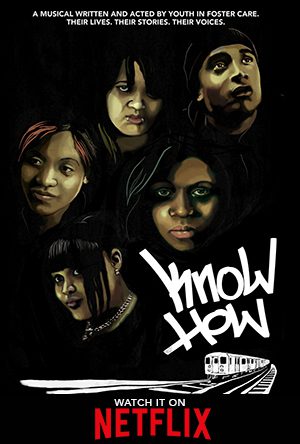The New York Times just published a piece on the aspect of MJ’s death that troubles me the most- the fact that there can never be another superstar like him. No one will ever be as iconic and popular- there will be no more Elvis’s, Madonnas, MJs.
Our society’s attention is now completely unfocused- and without a single platform (MTV) or a single product (an album, versus collections of singles) no one will ever topple Thriller or come close. I’m glad MJ will forever be on top, but am sad that we’ll never as a world be as unified in loving/mourning a popstar.
Okay, I’ll shut up- here’s the fantastic article, some copied, link here.
After Jackson, Fame May Never Be the Same
by David Segal
On Thursday night, a crowd gathered in Union Square in Manhattan for a fond and spontaneous memorial to Michael Jackson. A few hundred onlookers formed a circle, leaving enough space in the middle for the grandstanders and the brave to dance like the King of Pop. Or try to.
Even the lamest moonwalk drew chants of “Mi-chael, Mi-chael!”
Watching this spectacle, you had to wonder: When will this happen again? When will another pop culture figure mean so much to so many that people are moved to assemble, hug and dance?
This is a tribute, of course, to Mr. Jackson’s singular gifts — his voice, songwriting talent, physical grace, and the list goes on and on. But there is the related matter of historical timing. Fame on the level that Mr. Jackson achieved is all but impossible for pop culture heroes today, and quite likely it will never be possible again.
On the most basic level, this is matter of business and math. Michael Jackson has sold an estimated 100 million copies worldwide of the 1982 album “Thriller,” which spent more than 31 weeks at the top of the Billboard charts.
It’s one of those high-water marks that nobody will touch, because record stores are vanishing, and along with them, megahit albums are vanishing, too. A big week on the Billboard charts is a quarter-million units sold, which is about the number of units the Jonas Brothers moved last week with their latest release, which opened at No. 1. And it’s rare for an album to last even three weeks at the top.
People who buy music tend these days to buy — or steal it — online, a song at time.
But even if nobody achieves album sales on a Jacksonian scale, couldn’t he or she be an artist every bit as popular, every bit as loved, every bit as listened to?
Probably not. The pop-idol field — like every field that can lead to super-fame — is more crowded than it has ever been, and the variety of routes to stardom keep growing. When the Beatles were on “The Ed Sullivan Show” in 1964, more than 70 million people watched, that is, more than one-third of the entire population of the United States. Yes, the Beatles were that good. But at the time, there were three networks and the radio. No Facebook, Twitter, video games, movie multiplexes, Sirius radio, malls or a dozen other potential drains on an audience.
There weren’t a lot of rock bands, either. George Harrison was the only Beatle who’d visited the United States before the group landed for that historic performance — his sister lived in Illinois — and when he returned to England he gleefully informed his mates that nobody in America could compete.
Likewise, Michael Jackson had MTV, which was the place for music videos, and as close to an Ed Sullivan platform as he needed. Of course, it’s been a long time since MTV played hour after hour of prime-time videos. Today, you watch music videos on YouTube, but because there are no programmers to curate what you see, every artist has to compete with thousands of others. And now that anyone with a computer has a miniature studio, and anyone with a Internet connection can post a song, there are more genres, subgenres and artists than ever.
That’s why even Michael Jackson would have a hard time becoming Michael Jackson these days. Come to think of it, Farrah Fawcett, who also passed away this week, would never have become Farrah Fawcett if she showed up in that red, one-piece bathing suit today. In the ’70s, she became the fantasy of choice for every post-pubescent teenage boy in the country, selling 10 million posters of her iconic, high-beam smile. Now, there are so many vixens grinning seductively from so many Web sites and lad mags that no single woman could ever commandeer the public imagination in quite the same way. There is no “this year’s model” anymore. There is this week’s model, and that’s about it.
There are plenty of upsides to the new unfiltered, multiple-choice pop culture of 2009. We get to decide what we want to listen to and watch, and we can listen and watch whenever we want. It’s far better for aficionados, too, because they can dig deeper into any topic, no matter how obscure. Obsessed with a soccer team in Germany? Twenty years ago, you’d be lucky to spot it twice a year on TV. Now, you can watch it online, and a dozen blogs are there to parse every goal, red card and trade.
But there is something sad about our infinite menu of options. It could very well mean the end of true superstardom and with it, the end the collective experience on display Thursday night in Union Square.
Everyone there knew Michael Jackson. Everyone there had watched him, sang with him, tried to dance with him and, yes, everyone was collectively aghast by much of his recent behavior. But he was ours. If nothing else, his passing reminds us of how little in pop culture we currently share.
And inadvertently, that Union Square memorial demonstrated why. In the middle of the impromptu festivities, a pedicab cycled by with a platform attached to the back. Jutting from the platform: a silver, 10-foot stripper pole, on which a woman in lingerie was spinning, legs splayed, upside down, then right side up, then upside down again.
There were flashing lights and, inevitably, the name of a Web site stenciled on the side.
Half of the people in the Michael Jackson throng spotted the rolling spectacle and started pointing. A few dozen turned on their heels and joined this woman and her cycler in a slow, jaw-dropping and highly distracting procession down the street.





